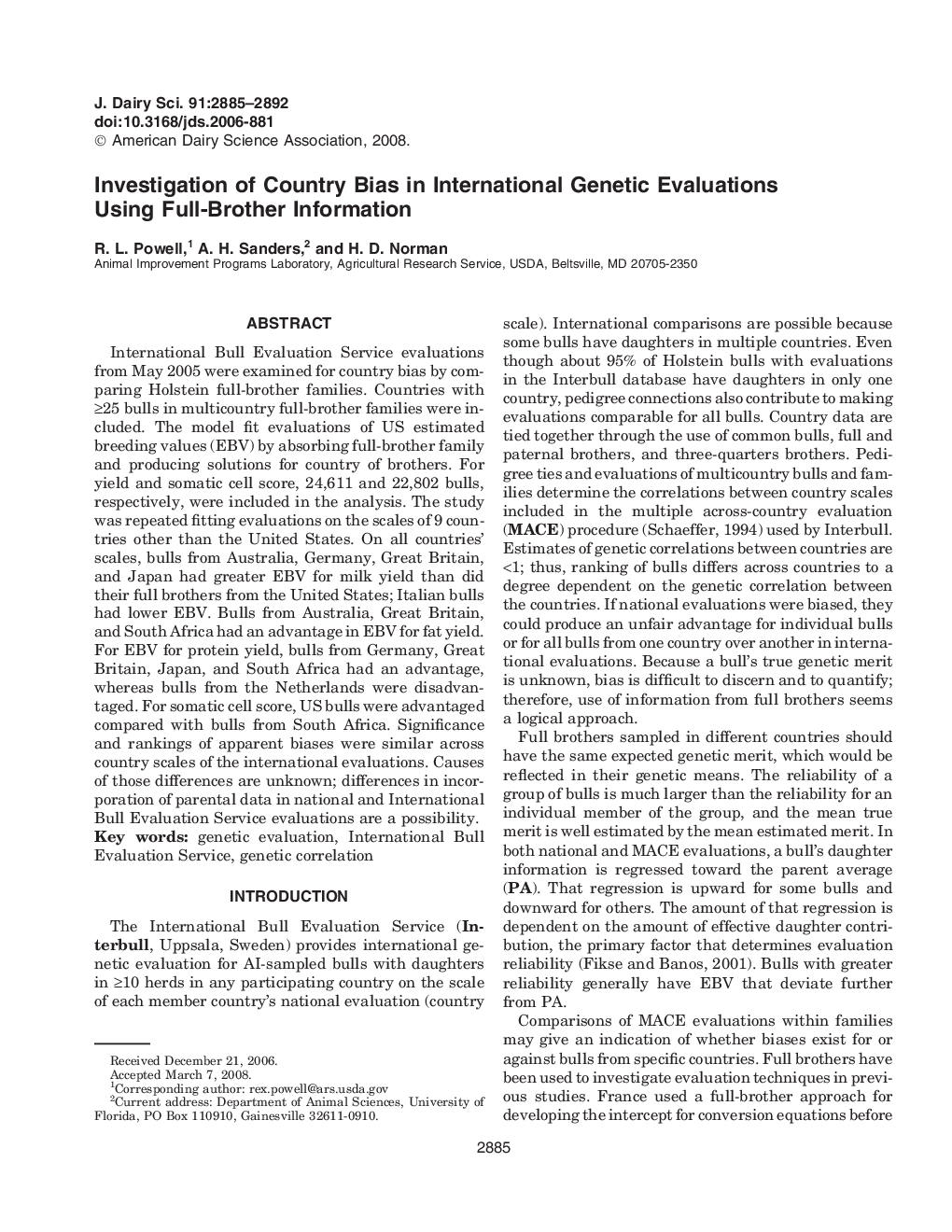| Article ID | Journal | Published Year | Pages | File Type |
|---|---|---|---|---|
| 2439928 | Journal of Dairy Science | 2008 | 8 Pages |
Abstract
International Bull Evaluation Service evaluations from May 2005 were examined for country bias by comparing Holstein full-brother families. Countries with â¥25 bulls in multicountry full-brother families were included. The model fit evaluations of US estimated breeding values (EBV) by absorbing full-brother family and producing solutions for country of brothers. For yield and somatic cell score, 24,611 and 22,802 bulls, respectively, were included in the analysis. The study was repeated fitting evaluations on the scales of 9 countries other than the United States. On all countries' scales, bulls from Australia, Germany, Great Britain, and Japan had greater EBV for milk yield than did their full brothers from the United States; Italian bulls had lower EBV. Bulls from Australia, Great Britain, and South Africa had an advantage in EBV for fat yield. For EBV for protein yield, bulls from Germany, Great Britain, Japan, and South Africa had an advantage, whereas bulls from the Netherlands were disadvantaged. For somatic cell score, US bulls were advantaged compared with bulls from South Africa. Significance and rankings of apparent biases were similar across country scales of the international evaluations. Causes of those differences are unknown; differences in incorporation of parental data in national and International Bull Evaluation Service evaluations are a possibility.
Related Topics
Life Sciences
Agricultural and Biological Sciences
Animal Science and Zoology
Authors
R.L. Powell, A.H. Sanders, H.D. Norman,
